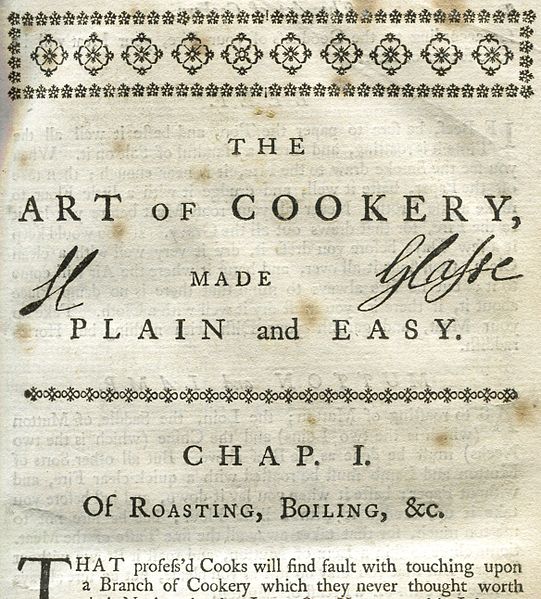Plagiarism is the representation of another person's language, thoughts, ideas, or expressions as one's own original work. Although precise definitions vary depending on the institution, in many countries and cultures plagiarism is considered a violation of academic integrity and journalistic ethics, as well as social norms around learning, teaching, research, fairness, respect, and responsibility. As such, a person or entity that is determined to have committed plagiarism is often subject to various punishments or sanctions, such as suspension, expulsion from school or work, fines, imprisonment, and other penalties.
Hannah Glasse's signature at the top of the first chapter of her book, The Art of Cookery Made Plain and Easy, 6th Edition, 1758, an attempted defense against rampant plagiarism
Comparison of a woodblock print by Hiroshige (left) to its copy by Vincent van Gogh
Copyright infringement is the use of works protected by copyright without permission for a usage where such permission is required, thereby infringing certain exclusive rights granted to the copyright holder, such as the right to reproduce, distribute, display or perform the protected work, or to make derivative works. The copyright holder is typically the work's creator, or a publisher or other business to whom copyright has been assigned. Copyright holders routinely invoke legal and technological measures to prevent and penalize copyright infringement.
An advertisement for copyright and patent preparation services from 1906, when copyright registration formalities were still required in the US
Pirated edition of German philosopher Alfred Schmidt (Amsterdam, c. 1970)
Demonstration in Sweden in support of file sharing, 2006





